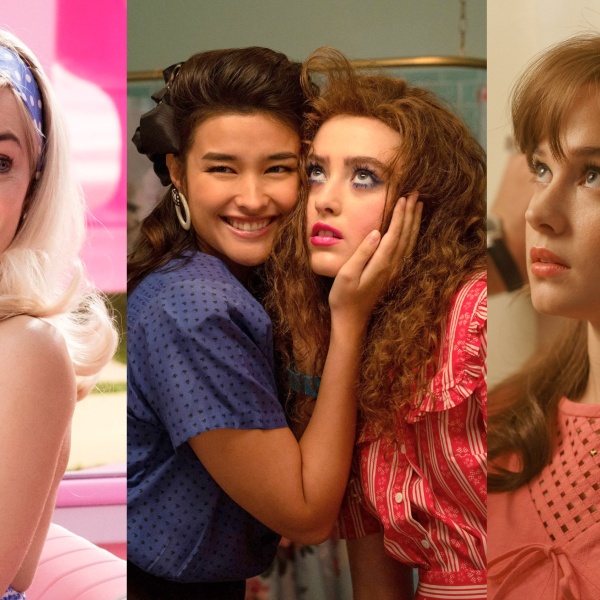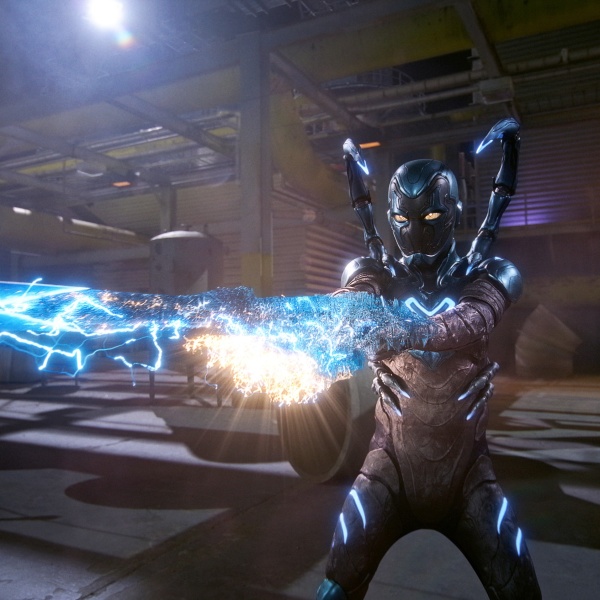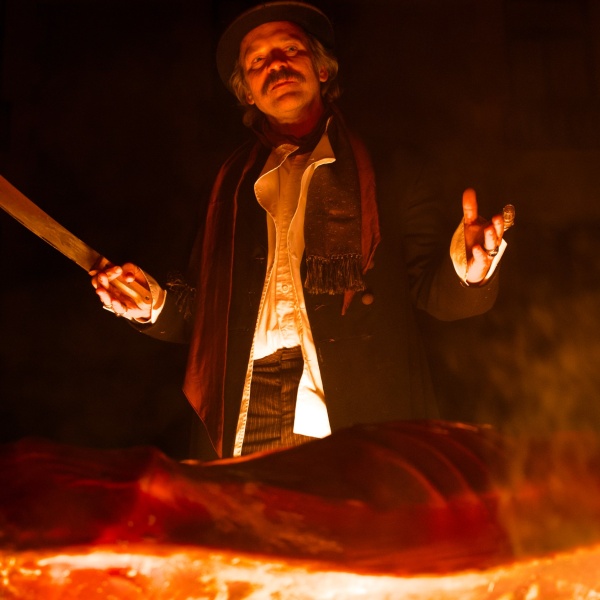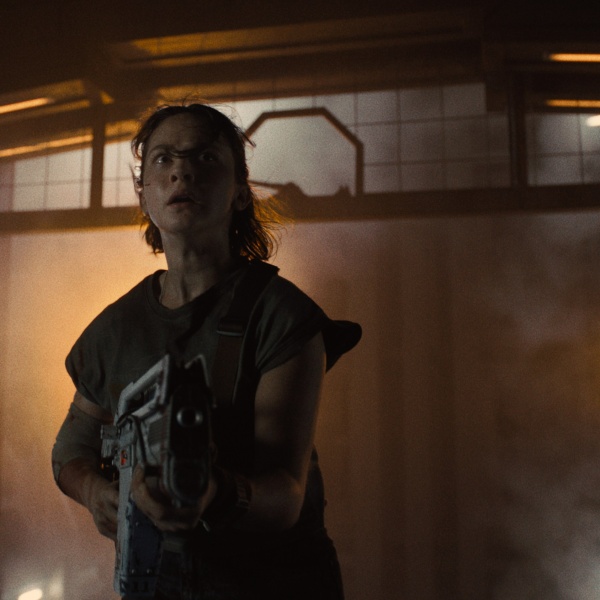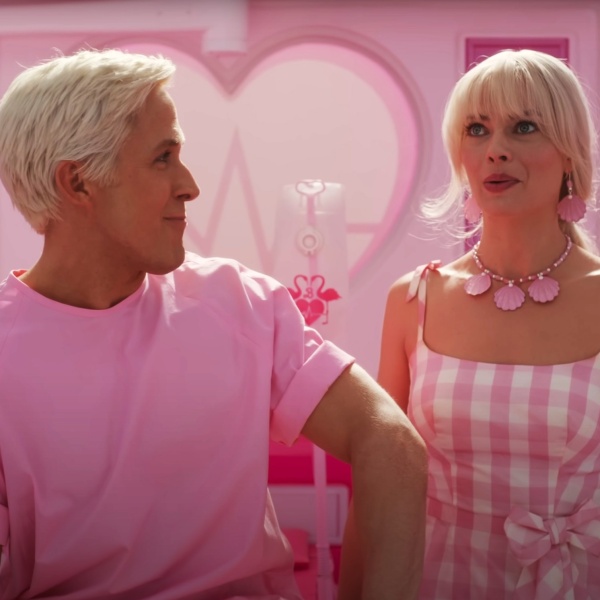Director Also Discusses His Upcoming Project ‘Million Dollar Arm

“Win Win” is the latest effort from writer-director Thomas McCarthy, who last helmed the Oscar-nominated “The Visitor.” But most have preconceived notions of the man behind the camera. McCarthy is also an accomplished actor, having appeared in work as diverse as “The Wire,” “Syriana” and “2012” in between his small, sensitive character dramas, and is often seen in unpredictable places. The bulk of people who attended the loony New York Comic Con presentation for “Your Highness” seemed to be oblivious that McCarthy was in fact the moderator at that event.
We sat down with McCarthy to discuss “Win Win,” delving into his interest in sports movies, his work with actors, and his contributions to Pixar.

Did you conceive of the wrestling angle first, or were you drawn to the legal aspects of the story when you began to develop the script?
Literally the whole conversation started when I was at home. I was working on “Duplicity” at the time, and I was doing press for “The Visitor,” and I was very busy. I had this idea for a sports wrestling movie. I called [co-writer Joe Tiboni], and said, “You know, no one’s really done a good movie about wrestling!” And he said, “That would be hilarious!” It was more theoretical at the time. You don’t call your friend who’s a lawyer who’s never written a script and say, “Let’s make a movie.” And we just started laughing about our experiences, because we were on a high school team together. So I said, “Let’s make this movie, let’s toss around ideas.” And we just emailed back and forth, kept a file on the idea as we traveled.
I started to cherry pick a little from Joe’s life. Like, what if Mike was an elder law attorney? Because I always got a kick out of stories of Joe’s life, the things his client says and do. It can be incredibly heartbreaking, but sometimes incredibly funny. And he has a good sense of humor, so he was able to relay that to me. As we started to get into the themes of the movie, the idea of responsibility and legality, then the wrestling tied in pretty organically.
In “Win Win” you’re dealing with this comedy, but you also treat the social realities of the characters in a serious manner. How did you avoid keeping the comedy from spiraling into a wackier direction away from the story?
The thing about humor is that you need to approach it in two ways. Is the moment interesting, does it work? I don’t think I’m a comedy writer, I find humor in real moments and real characters. I think there are some comedy writers that can do that much better. I greatly admire that, but I’m not that guy. And the other way is in dealing with the tone of the film. How much humor can come out of that and still feel like it’s serving the story and not muddying the waters?
Ultimately the movie doesn’t start that funny, and the first ten or fifteen minutes are pretty serious. For me it’s about the development of world and character. And then [the laughs] start, and the reason it works so well is because you start to understand and believe these characters. For instance, inevitably the biggest laugh is when Bobby [Cannavale] says, at the weigh-in, “This kid is so friggin’ cool.” It’s the one time everyone laughs, and for me it’s telling. I was thinking, “It’s not that funny of a line.” But the audience is already kinda thinking that about the kid, and we’re seeing it through the guy’s eyes. That, to me, is less about a joke and more about feeling it.
I think there’s also that real world seeping in, like the consistent clanging of that radiator in Mike’s office.
That came from me writing at Joe’s office. And you’re literally sitting there and writing and you hear this “kunk kunk” and you’re like, my God. And I told him, “That radiator’s insane!” And he was like, “I know, I just replaced it!” And he took me down to the basement, and there was the exact spot where the radiator was. His basement looks like Mike’s basement. So I just went upstairs and added that in.
Do you relate to the actors as a fellow actor when you’re directing, or is directing like wearing one mask instead of another?
For me, it’s probably a little bit of both. I was an actor first, so I’m always approaching roles as an actor, even when I’m writing scripts. I imagine it’s a lot like being a player-coach. You talk to athletes like athletes, but there’s a time when you’ve gotta be a coach. And I’m a pretty easygoing director. After casting the film right and after rehearsal, a lot of these guys don’t need a lot of hands-on. And it’s not necessarily helpful when a director comes up to you shows you how he wants you to say it. That’s restrictive, that’s not directing, it’s not guiding.
Are there any directors you’ve learned the most from?
I don’t think there is one. If you asked me about a certain director, I could tell you what I’ve picked up. It’s very personal, someone’s style. Some things they can do, I can never do, I’m not that person. I’m not going to be as mellow as Clint Eastwood. I’m not going to be as gregarious as George Clooney. George does a good job of keeping sets so much fun. Easy sense of camaraderie. Especially on “Good Night And Good Luck,” having us feel like we’re a part of something, which the movie is about. We felt like we were just a bunch of guys hanging out, which is what the movie’s about, a boy‘s club.
If there was one, it would probably be Sidney Lumet, just stylistically and also just his approach, his carryover from theater to film. His sense of detail, his sense of urgency on set, sense of preparedness. I’m not as proficient as he was, but, you kind of learn from it. I’ve never worked with him, I just knew him in a friendly manner, and read everything he’s written, seen all his movies.
Can you talk about your involvement in “Up”? You have a story credit.
I was one of the original writers of the screenplay. Pete Docter, the original director, saw “The Station Agent” a while back, and really liked it. He remembered me and called me, said, hey, I’ve got this script. Bob Peterson, who had co-written the script, was on another project, they swap in and out over there. So they said, come in, we’ll do some work on this. I went out there, stayed for four months, wrote a couple of drafts, came up with the character of Russell at that point. And we had started to develop the relationship between Carl and Russell. We had a good time with that. I was proud to be a part of that movie, I think it’s great.
Can you talk about your next project?
I’m writing a film for Disney now. The working title is “Million Dollar Arm,” and its based on a sports agent that set up a contest in India with the presumption that if there are a million cricket players in India that someone must be able to throw a baseball there. And he came back with these two pitchers that not only learned the game, but tried out and got picked up by the Pittsburgh Pirates. It’s a great story, very human story. I haven’t decided yet if I’m going to direct. We’ve had some discussions. I took the job on as a writing job. I wanna see how the script turns out, then maybe those discussions will continue. It’s going to be focused on this relationship between the agent and the players. It starts out as this contest, but then this guy moves in with them. They become part of his life, which is pretty funny.
Are you cognizant about working within the genre of a “sports film”? And with this and your next project, could this suggest a change in your reputation?
I agreed to do this awhile ago, and people started saying, now you’re in the sports movie world with this and “Win Win.” I think it’s about visually how you see a movie. It shouldn’t feel like that big a jump. We knew there was gonna be an adrenaline kick with the wrestling stuff. But I think it was really trying to have a tonal consistency. We kept thinking, “How do we make this our type of sports movie?” And you always have to start with character.
“Win Win” is currently in limited release and opens wide on April 15th.


